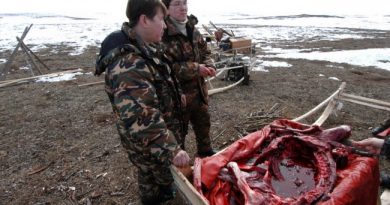U.K. to send sub-hunter aircraft to Arctic in 2020 to “counter” Russian activity

The United Kingdom will deploy its sub-hunter patrol aircraft to the Arctic next year to help “counter Russian submarine activity that has reached Cold War levels,” said Britain’s Ministry of Defence in a news release on Monday.
Nine P8 Poseidon aircraft will do reconnaissance patrols in the Arctic and North Atlantic after they’re delivered to RAF Lossiemouth, a military airbase in north-east Scotland, in 2020.
It will be their first deployment, the ministry said.
“The Arctic Strategy puts us on the front foot in protecting Britain’s interests in this expanding new frontier,” said Defence Secretary Gavin Williamson in the news release.
“Whether it’s sharpening our skills in sub-zero conditions, learning from longstanding allies like Norway or monitoring submarine threats with our Poseidon aircraft, we will stay vigilant to new challenges.”
Boeing, the company that makes the P8 Poseidon, describes the aircraft as designed for long-range anti-submarine warfare, anti-surface warfare; intelligence, surveillance and reconnaissance missions, as well as search and rescue missions.
Refocus on North
As activity in the Arctic increases, Britain, once a major player in the North, has been scrambling to ramp up its northern know-how.
A UK defence sub-committee report last August bemoaned the country’s dwindling ability to operate in the North and stressed the need for Britain to re-build its Arctic expertise.
Previous announcements by Williamson on the Arctic include more frequent under-ice deployments for the Royal Navy, RAF Typhoon fighter jet participation in NATO Air Policing over Iceland and closer integration of the Royal Marines with the Norwegian military over the next 10 years that will see around 1,000 marines go North per year for cold weather training.
Write to Eilís Quinn at eilis.quinn(at)cbc.ca
Related stories from around the North:
Canada: NATO’s Arctic dilemma, Eye on the Arctic
Finland: Finnish Defence Minister tells party leaders shrinking fighter fleet would be “irresponsible”, Yle News
Norway: Russian jets led mock attack on Arctic Norway radar, intel director says, The Independent Barents Observer
Russia: Russia accuses Norway of northern military buildup, The Independent Barents Observer
Sweden: Faced with Trump’s wavering support for NATO, Nordic nations stick together, The Independent Barents Observer
United States: U.S. experts call for ‘vigilance’ on Russian military buildup in Arctic, Alaska Public Media



